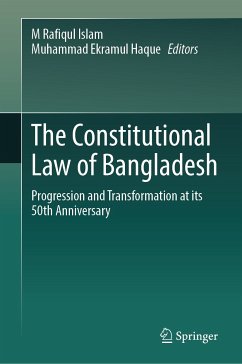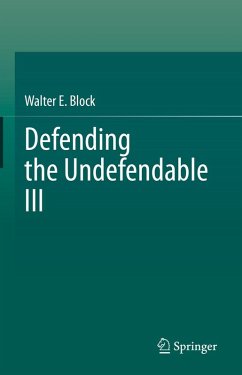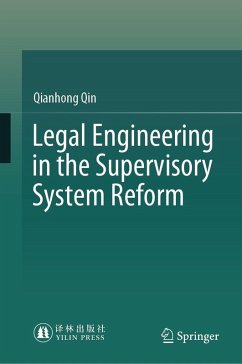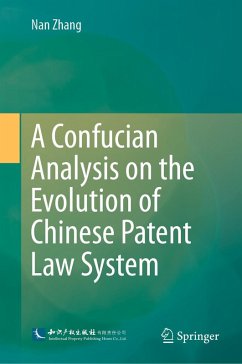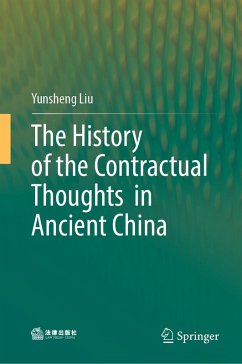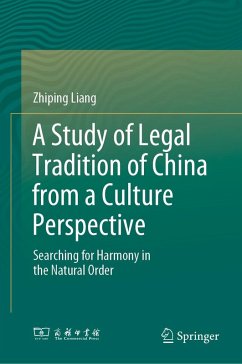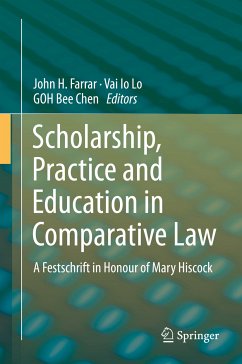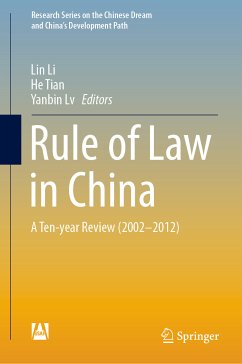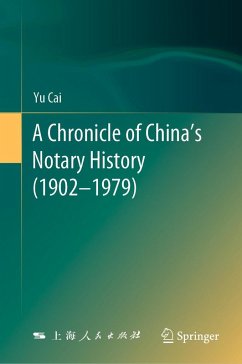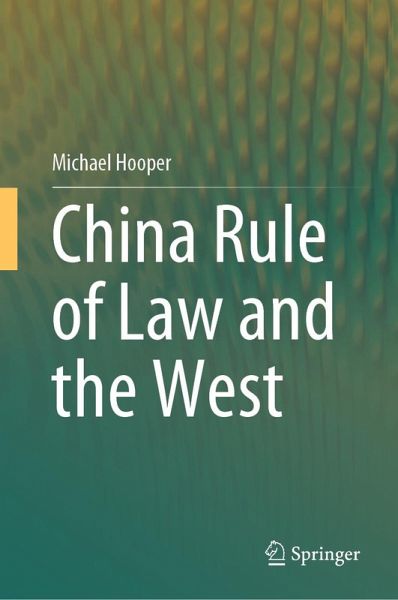
China Rule of Law and the West (eBook, PDF)
Versandkostenfrei!
Sofort per Download lieferbar
112,95 €
inkl. MwSt.
Weitere Ausgaben:

PAYBACK Punkte
56 °P sammeln!
This book reveals how the Chinese Party-State uses "ideo-political education" to inculcate young citizens with official narratives on law. It provides an account of China's version of "rule of law" under the Yifa Zhiguo paradigm, arguing that authorities see law as a tool to apply when convenient and ignore when it impedes Party-State goals. Moving beyond the question of whether China's system can count as a rule of law order, this book identifies three consistent features of Chinese law reform since the Opening and Reform era began: the supremacy of the Communist Party of China over the law, ...
This book reveals how the Chinese Party-State uses "ideo-political education" to inculcate young citizens with official narratives on law. It provides an account of China's version of "rule of law" under the Yifa Zhiguo paradigm, arguing that authorities see law as a tool to apply when convenient and ignore when it impedes Party-State goals. Moving beyond the question of whether China's system can count as a rule of law order, this book identifies three consistent features of Chinese law reform since the Opening and Reform era began: the supremacy of the Communist Party of China over the law, instrumentalism, and reform-repression dualism.
This book uniquely combines the "what" with the "how" of China's "rule of law" efforts. China law researchers will benefit from understanding how China's young adults learn about official law narratives. A more general audience interested in China's legal and political system will gain valuable insights from the analysis of China's "rule of law."
The growing tensions between China and the West mean that now, more than ever, scholars and policymakers need to properly understand China. Understanding what Chinese officials mean when they talk about the rule of law in China helps avoid policy errors made from mistakenly assuming that Western definitions are universal. The contents of this book can also inform government and university efforts to properly accommodate Chinese students in the West while mitigating harmful manifestations of the nationalist ideology, in part implanted by ideo-political education.
This book uniquely combines the "what" with the "how" of China's "rule of law" efforts. China law researchers will benefit from understanding how China's young adults learn about official law narratives. A more general audience interested in China's legal and political system will gain valuable insights from the analysis of China's "rule of law."
The growing tensions between China and the West mean that now, more than ever, scholars and policymakers need to properly understand China. Understanding what Chinese officials mean when they talk about the rule of law in China helps avoid policy errors made from mistakenly assuming that Western definitions are universal. The contents of this book can also inform government and university efforts to properly accommodate Chinese students in the West while mitigating harmful manifestations of the nationalist ideology, in part implanted by ideo-political education.
Dieser Download kann aus rechtlichen Gründen nur mit Rechnungsadresse in A, B, BG, CY, CZ, D, DK, EW, E, FIN, F, GR, HR, H, IRL, I, LT, L, LR, M, NL, PL, P, R, S, SLO, SK ausgeliefert werden.



